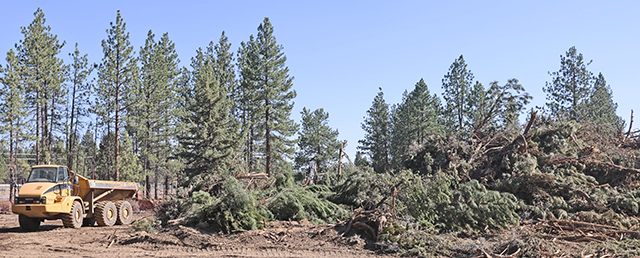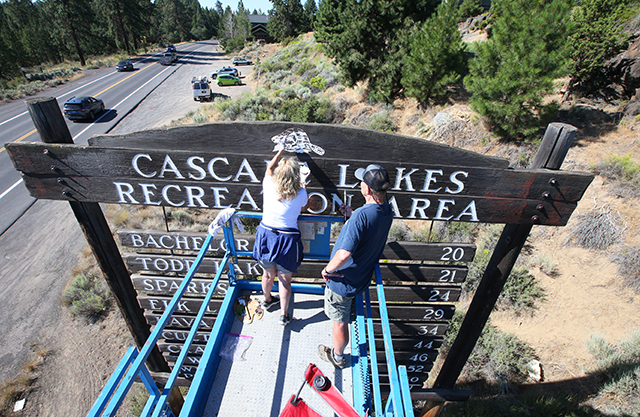What defines a generation: This time, few really know
Published 5:00 am Sunday, July 6, 2008

- Working on a documentary on the presidential race, Doan Nguyen, left, and her colleagues explored young people’s views on their place in the generational timeline and the labels others want to attach. As for herself, “I don’t know where I am in this generational timeline,” says Nguyen, of Washington, D.C.
Everyone knows the GI generation of World War II and the baby boomers who followed. And everyone knows the late-20th-century demographic labeled with the non-label generation X.
But the next generation — a burgeoning force in presidential politics, the job market and the spread of social networking — is harder to define. Lumped under millennials or generation Y, some in their 20s and early 30s say those titles and others ginned up almost daily in a brand-obsessed pop culture confuse them. They are unsure what most encapsulates their experience.
Trending
For Doan Nguyen, 26, a photo editor at the nonprofit Conservation International, figuring out her generation has become a mission, prompted partly by a documentary she is filming. One recent night in Washington, D.C., she mulled over the issue with Marshall Maher, 32, the nonprofit group’s spokesman.
Maher, who says he’s between generations, ruminated about the millennials. “They’re about second life,” he said. Virtual reality. “I don’t know if I can, like, relate.”
Nguyen looked defeated. “I don’t know where I am in this generational timeline,” she said.
No doubt it has always been difficult for generations to accept labels and generalizations. But some in the post-X generation say their puzzlement over their collective identity is more pronounced because their formative experiences have been so splintered. Reared on rapid-fire Internet connections and cheap airline tickets, and pressured to obtain multiple academic degrees, many of these young adults grew up with an array of options their parents or older siblings did not have.
“People resist labels more among the millennials because there’s more subcultures,” said Michael Connery, 30, author of the political book “Youth to Power.”
“It’s a fragmented culture in a way that it’s never been. You know how baby boomers ask, ‘Where’s the protest music?’ and lament the lack of youth activities? There is protest music, but it’s so broken up into niche audiences that it doesn’t gain as much traction.”
Trending
Nguyen’s conversations with her peers illuminate how society’s shorthands easily confuse some in this age group. Some say they feel post-generational. Others say an agreed-upon label would confer a sense of historical status.
“Did Tom Brokaw write a book about us?” Maher asked, referring to the former NBC news anchor’s best-seller on those who came of age in World War II. “That’s my concern. We didn’t get a ‘Greatest Generation’ book.”
“Not yet,” Nguyen said.
Neil Howe, who coined “millennials” with William Strauss, predicted that the generation’s preference for consensus-building and nonstop, digital communication will alter business and political landscapes. Businesses, he said, will accommodate this generation by creating more team projects, and millennials will tend to reject the negative and moralistic politics they witnessed as children.
“Millennials will be the next powerhouse political generation,” he said, adding that their use of technology often startles previous generations. “Millennials are turning information technology toward community-building, like you are always plugged into your friends. Frankly, for many boomers, this is an Orwellian nightmare.”
Here’s how the generational constellation breaks down:
Baby boomers, experts say, were born from 1943 up to 1960 (although the U.S. Census extends the range to 1964) and are characterized as idealists and moralists who fought over war, gender inequality and race. Generation X, born between the early 1960s and the early ’80s, is described as economically conservative and disaffected, influenced by Ronald Reagan’s presidency (and Michael J. Fox’s preppy Alex Keaton character in the television sitcom “Family Ties”). Millennials, who experts say were born either in the late 1970s or ’80s to the early 2000s, are said to have grown up sheltered and are risk-averse.
Complicating matters, millennials are sometimes known as generation Y. Then there’s the Facebook or YouTube generations. Echo Boomers is also bandied about. The presidential campaign has spawned the Obama generation, a nod to Sen. Barack Obama’s reliance on young Democratic voters. (The Illinois senator, born in 1961, regards himself as a “post-boomer.” The presumptive Republican nominee, Sen. John McCain, of Arizona, born in 1936, belongs to what social theorists describe as the “silent generation.”)
Some recycle Brokaw’s terminology, noting the new generation’s interest in public service. Last month on “The Daily Show with Jon Stewart,” Sen. James Webb, D-Va., said that armed forces in Iraq and Afghanistan deserve a 21st century GI Bill for education. “We keep saying this is the next ‘greatest generation,’ and we have seen everything they have done since 9/11,” Webb said. “We ought to give them the same opportunity.”
Another take is coming to television this month: “Generation Kill,” an HBO miniseries, based on an Evan Wright book, about Marines at the start of the Iraq War. Still, many young people don’t see the war as their defining experience. Some suggest it is the amassing of academic degrees and student loan or credit card debt.
In a three-week period of generational kibitzing, Nguyen interviewed several young people for her sister Thuc’s documentary on the presidential election. One night, they met at a friend’s Dupont Circle apartment. Seated on futons and surrounded by books and Trader Joe’s wine bottles, the interviewer and her subjects wondered, off camera and after taping, if they belong to generation X or the millennials/generation Y.
“My sister is 32. We believe them to be generation X, but it’s not that many years apart,” said Giacomo Abrusci, 26, an American Chemical Society project coordinator. “But they managed to get through their education without technology.”
Nguyen said that Thuc, 32, says she’s in the previous generation but identifies more with the younger one. “My sister thinks she’s in gen X, but she’s also super into Facebook and MySpace.”
Nguyen and her friends sifted through various labels without knowing their origins: generation X (the name of a Douglas Coupland 1990s novel on post-boomer angst), generation Y (an alphabetical sequel) and millennials.
Some research suggests that people in their 20s and 30s might be defined by their politics. They are the first generation in at least three that calls itself “liberal,” said Michael Hais, who with Morley Winograd wrote “Millennial Makeover: MySpace, YouTube and the Future of American Politics.”
A Washington Post-ABC News poll in May found that 59 percent of 18- to 34-year-olds are Democrats or Democrat-leaning independents, and that 58 percent would favor Obama over McCain.
For her last interview, Nguyen met Will Bower, 35, a Thomson Reuters researcher, at a coffeehouse near Dupont Circle.
Bower felt old. “I am 35, and it sounded like you were wanting younger for the interview,” he said.
“I think we’re interviewing people from ages 18 to 35,” Nguyen said.
“Generation … Atari,” Bower interjected. “Well, yeah, X can be broken down to Atari and Nintendo. So, I’m still generation Atari.”
“I wasn’t allowed to play video games,” Nguyen said. “I did play Nintendo because I would sneak to my neighbor’s house because I liked ‘Super Mario.’”
Nguyen smiled. Finally, she figured it out. She belongs to generation Nintendo.







